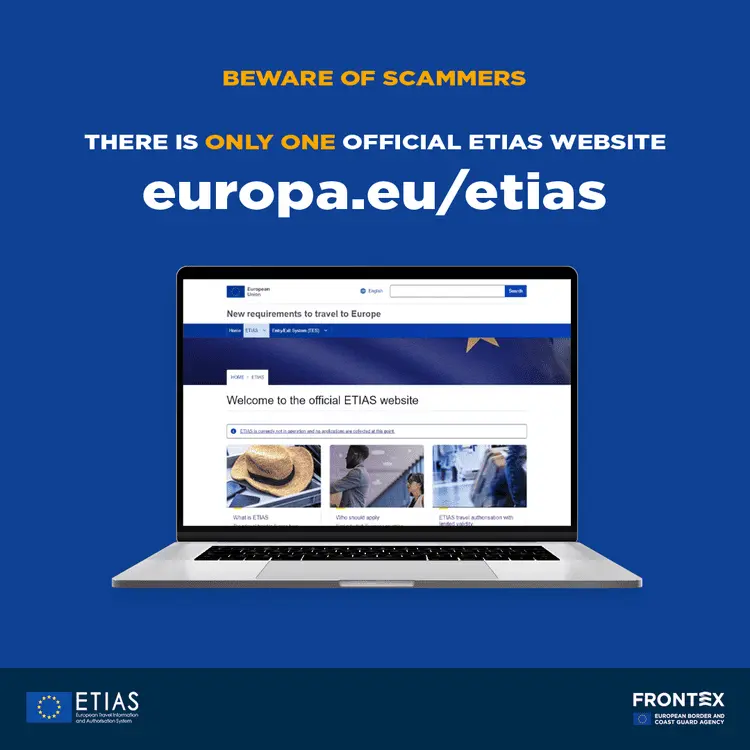Frontex is alerting future visitors to Europe about the dangers of using unofficial websites for their ETIAS applications.
At a time when the security of international travel is more crucial than ever, Frontex recently issued an important alert for travelers exempt from Schengen visa requirements.
The the European Border and Coast Guard Agency, which supports the European Union and Schengen member countries in managing the EU’s external borders and combating cross-border crime, reminds travelers that the rules for visa-free travel to Europe will change in the first half of 2025.
With the introduction of ETIAS, the European Travel Information and Authorisation System, Schengen visa-exempt travelers will have to apply for a travel authorization before starting their journey to one of the 30 European countries participating in the program.
Frontex emphasizes that with the imminent launch of this system, it is essential to ensure that the public is aware of the new travel requirements and how to apply for the ETIAS travel authorization.
More than 100 unofficial ETIAS websites…
Visa-exempt travelers to Europe will be able to apply for their travel authorization on the EU’s official ETIAS website: europa.eu/etias.
However, Frontex has already identified over 100 unofficial websites currently providing information about ETIAS to non-European travelers. While some of these sites are operated by legitimate businesses, others may be less trustworthy, Frontex warns.
“We are aware of several sites that claim to already accept ETIAS applications. Travellers should be very cautious about those websites, as it is not currently possible to apply for an official ETIAS travel authorisation since the system is not operational yet”, warns Francois Laruelle, Director of the ETIAS Central Unit Division at Frontex.
While commercial intermediaries will be authorized to request travel authorization on behalf of their customers, travelers are advised to be careful with whom they share their personal data.
Risks posed by dubious third parties range from identity theft to exorbitant fees and data protection issues.
Fake ETIAS sites proliferate with imitations and deceptive domains

Many unofficial websites identified by Frontex also provide incorrect information on who is covered by the ETIAS system and how to apply.
Some of these unofficial sites use various techniques to appear trustworthy: for example, they may imitate the layout of the official ETIAS site, use domain names that appear official, or use copyrighted EU documents.
When using a service provider, VisasNews advises you to check the seriousness of the site (reviews, social media, guides, forums, address, etc.) and to contact the agency if you have any questions.
Frontex, in collaboration with the European Commission, Eu-LISA, Europol and the 30 European countries participating in the system, is currently preparing for the launch of the ETIAS system, which will cover 1.4 billion potential travelers from some 60 visa-exempt countries.
This system will carry out a pre-travel risk check for visitors arriving without a visa, strengthening Europe’s internal security while reducing the administrative burden at border crossings.
Upon the system’s launch next year, the ETIAS central unit hosted by Frontex will be operational 24/7 to assist travelers and carriers, and process ETIAS requests.

